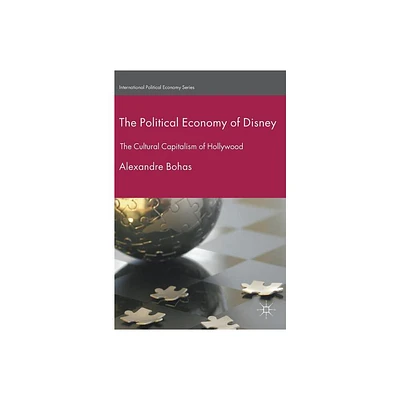Home
Elite Networks: The Political Economy of Inequality
Loading Inventory...
Barnes and Noble
Elite Networks: The Political Economy of Inequality
Current price: $55.99


Barnes and Noble
Elite Networks: The Political Economy of Inequality
Current price: $55.99
Loading Inventory...
Size: Audio CD
*Product Information may vary - to confirm product availability, pricing, and additional information please contact Barnes and Noble
Elite Networks
presents a new explanatory factor behind the persistence of income inequality: extractive political power.
Elite networks are informal social networks between politicians in power and top executives of politically connected firms where personal ties and long-term interactions build trust and loyalty between involved actors. Both groups draw benefits from these interactions; politicians stay in power, and corporate executives extract rents for their firms. Firms reward connected executives with higher salaries thus widening the dispersion of earnings in society. In
, Vuk Vuković offers a different perspective on the long-run origins of inequality. Calling upon historical arguments and direct empirical evidence, Vuković argues that inequality is not an artifact of a particular economic system, but a man-made phenomenon rooted deeply within the, often violent, quest for political power. Further, he theoretically and empirically establishes the impact elite networks have on higher inequality. Offering a unique contribution to the field, this book argues that to lower inequality and prevent incentives of elite network formation, we must first and foremost lower centralized political power and re-empower the citizens and the community by rebuilding trust and relying on the democratic trial-and-error mechanism.
presents a new explanatory factor behind the persistence of income inequality: extractive political power.
Elite networks are informal social networks between politicians in power and top executives of politically connected firms where personal ties and long-term interactions build trust and loyalty between involved actors. Both groups draw benefits from these interactions; politicians stay in power, and corporate executives extract rents for their firms. Firms reward connected executives with higher salaries thus widening the dispersion of earnings in society. In
, Vuk Vuković offers a different perspective on the long-run origins of inequality. Calling upon historical arguments and direct empirical evidence, Vuković argues that inequality is not an artifact of a particular economic system, but a man-made phenomenon rooted deeply within the, often violent, quest for political power. Further, he theoretically and empirically establishes the impact elite networks have on higher inequality. Offering a unique contribution to the field, this book argues that to lower inequality and prevent incentives of elite network formation, we must first and foremost lower centralized political power and re-empower the citizens and the community by rebuilding trust and relying on the democratic trial-and-error mechanism.

















